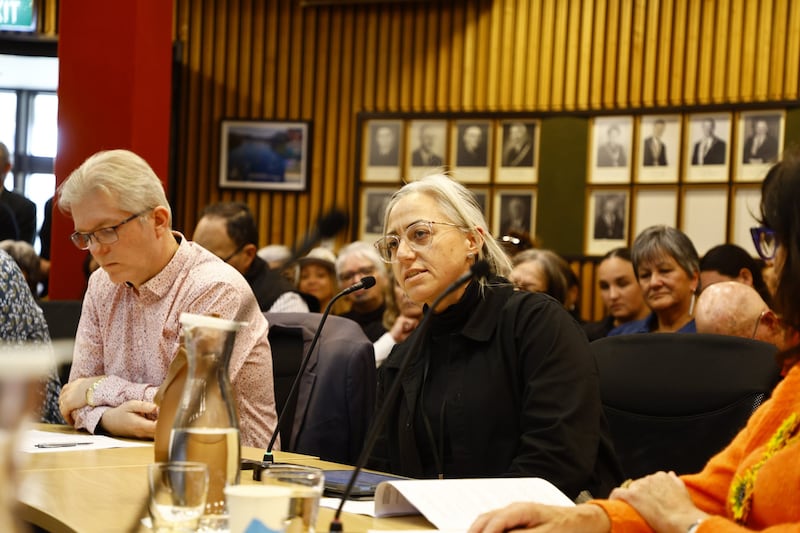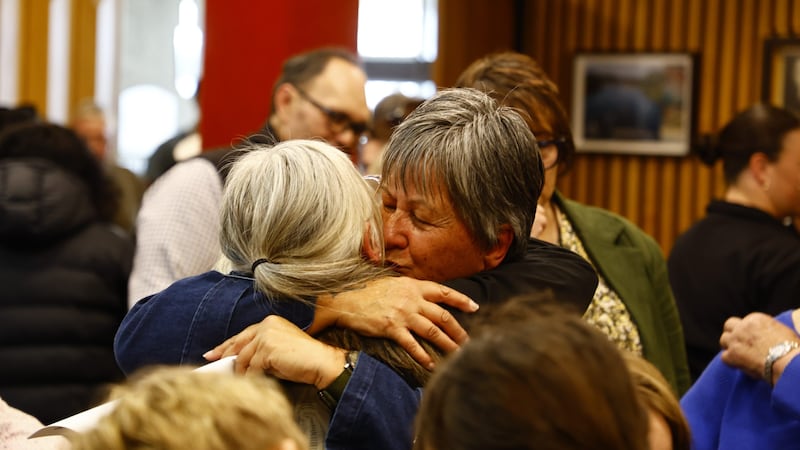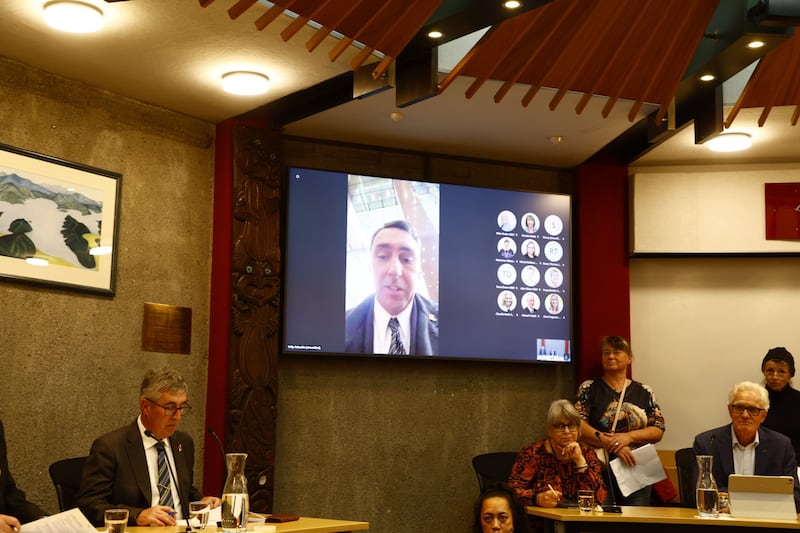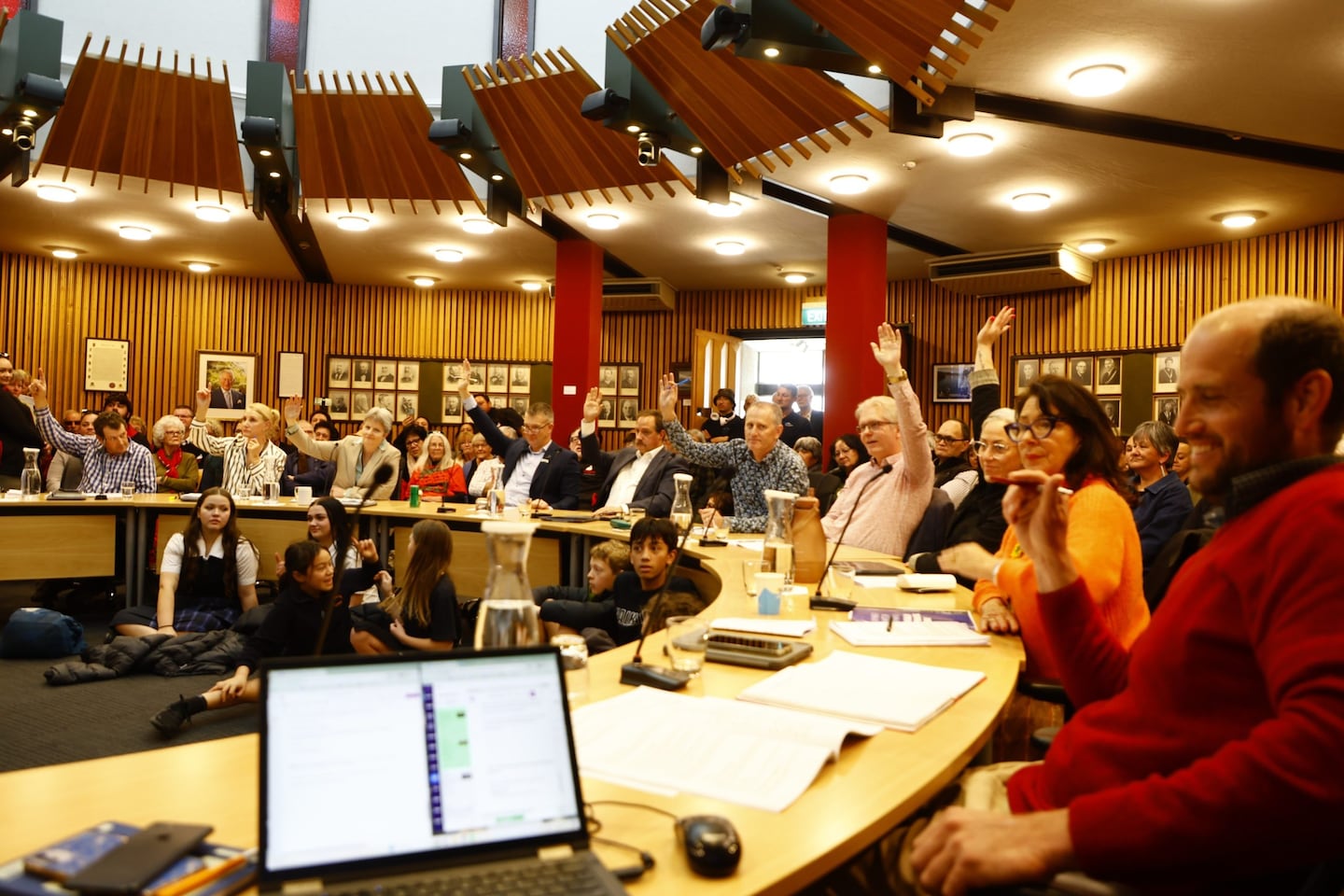The fate of Marlborough’s Māori ward will be left in the hands of the community to vote on, following a unanimous decision by councillors.
The Marlborough District Council chamber was full during an extraordinary meeting on Tuesday, as rangitahi sat on the ground in front of councillors and tangata whenua were piling out the doors to watch councillors vote to retain the Māori ward.
The decision means the council will hold a referendum on the Māori ward at the next local body election in October 2025. Regardless of the outcome decided by voters, there would still be a Māori ward in the next council term.
Before mayor Nadine Taylor opened the the floor for debate, she acknowledged the work of Māori ward councillor Allanah Burgess.

“This is something that is required of us from government. Councillor [Burgess], you are one of the team, you hold your head high, and I want to be really clear that we are not debating you today or discussing you.”
Marlborough Sounds ward councillor Barbara Faulls said the district did not need division, the likes of which had been seen elsewhere.
“Our friendship has been built on a common place, a common understanding, and also common interest and aspirations for our region, and I think we should continue that.”
Wairau-Awatere ward councillor Gerald Hope said he received more than 180 emails about the Māori ward.
“I want to thank all those that took the time to write to councillors. The ones that I read and responded to – if you read between the lines – were the ones that I agree with.”
He said he found it difficult to comprehend what central government was asking the council to do.
“It’s a precedent that I have difficulty with accepting. It’s a change that was fast-tracked.
“My message today, to the coalition Government ... is that having brought down legislation to strip away the power to establish Māori wards, in my view, it’s contemptuous, it’s cynical and it confirms a visible lack of respect for the role and leadership of local government.”
Burgess opened with a quote from Kiingi Tūheitia, the late Māori king.

“There’s no need to worry. In this storm we are strong. Together. The wind in our sails is kotahitanga, and with that we will reach our destination.”
She continued: “But here we are here today, making a decision that I never thought I would be sitting here making.”
She said the council had the opportunity to be on the right side of history.
“The decision that we make today is about more than just retaining this seat at the table. It’s about the strength and the future of our partnership with Māori communities but also our community as one.
“This ward is not merely just a seat; it’s a critical connection between this council and tangata mana whenua, whose knowledge, experience and leadership are essential to [our] wellbeing.

“In the times since this seat was established, we’ve seen the tangible benefits.
“We’ve forged a partnership that goes beyond mere transactions.”
Marlborough first voted to introduce a Māori ward in May 2021. At the time only one person voted against its inception – Blenheim ward councillor Jamie Arbuckle.
Arbuckle, who is a NZ First MP, chaired some of the hearings in Parliament on the Māori ward bill.
It meant Arbuckle, who attended Tuesday’s meeting via Zoom, declared a conflict of interest in the council vote.

His wife, Sally Arbuckle, also a councillor, said via Zoom that she did not believe in race-based seats, although she supported the recommendation to hold a referendum as she did “believe in democracy” and thought everybody should get a say.
Later in the meeting, Taylor called it an “irony” given the region had rural wards to enable representation, which Arbuckle sat on.
“I would suggest that rural ward councillors may not have found themselves at this table had they not had [rural] wards,” she said.
“I certainly would not have stood for council had there not been a Picton-Sounds ward. I wouldn’t have felt the confidence and I probably wouldn’t have carried Blenheim votes, and that is the value of wards.
“A Māori ward ensures that voice and that vote comes through to council and it is heard here at council.
“I look around at the rangitahi sitting here in front of me ... It’s really important that our young people see themselves reflected in their leaders.
“That is why I have no hesitation at all, in both supporting and putting the recommendation to council that we resolve to retain the Māori ward for the 2025 local election ... and that we then, because we are forced to, resolve to hold a binding poll.”
In a statement, Rangitāne o Wairau kaiwhakahaere matua (general manager) Corey Hebberd commended the council for its commitment to upholding the voices of Māori by retaining the ward.
“The continuation of a Māori ward ensures that our perspectives are actively contributing to the decisions that affect us all.”
He also acknowledged Burgess for her leadership and said her work had laid foundations for future generations to see themselves represented at the decision-making table.
LDR is local body journalism co-funded by RNZ and NZ On Air.



